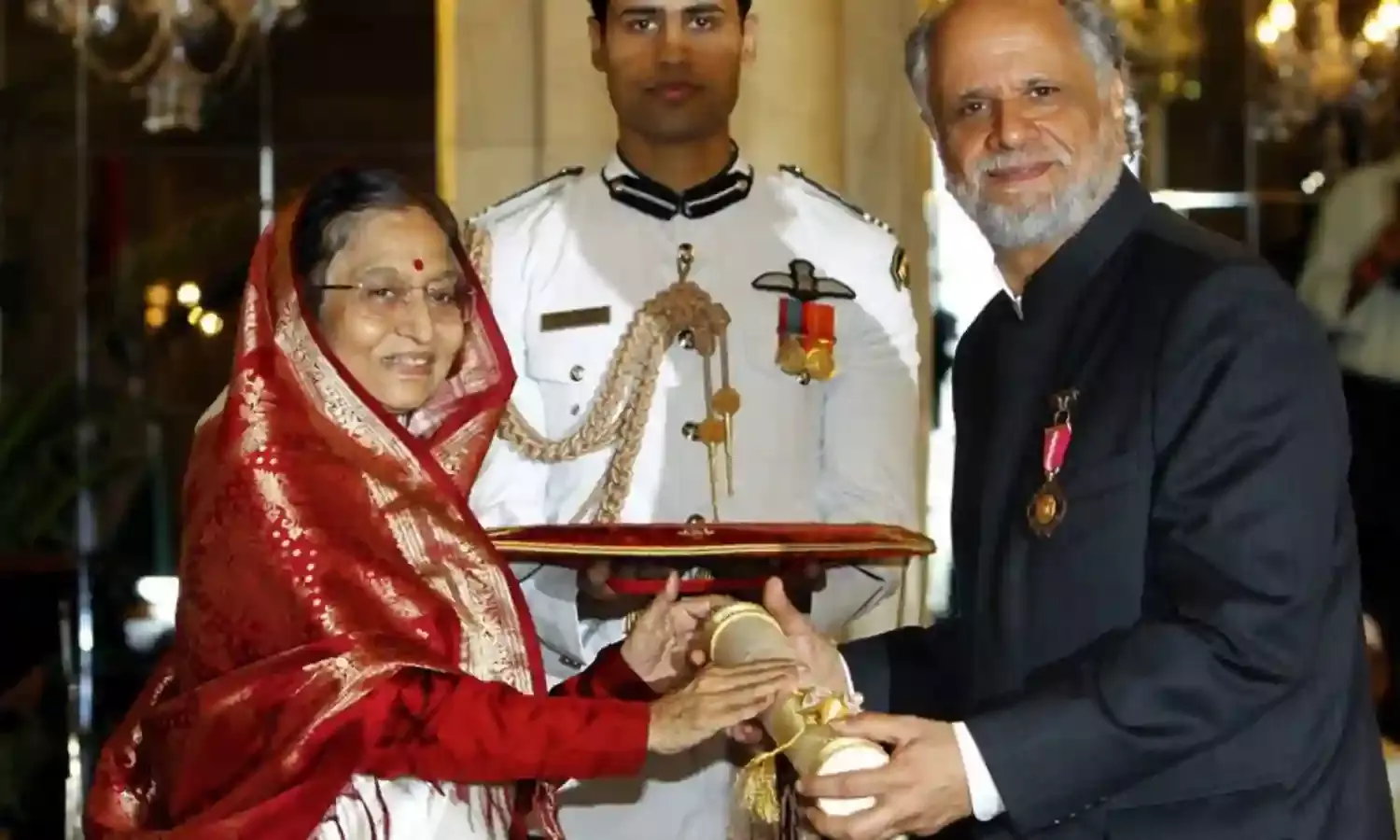Harvard Scholar Homi Bhabha Withdraws From Israel Conference After US Brokers UAE-Israel Deal
Padma Bhushan awardee;

Homi K. Bhabha, the renowned scholar of postcolonial studies, has confirmed his withdrawal from a conference in Israel amid criticism of his acceptance of the invitation.
Bhabha, a humanities professor at Harvard, had been scheduled to give the keynote address via Zoom at the annual conference of the Israeli Sociological Society (ISS) in February.
“I have withdrawn from the ISS conference because I have decided that it is not only what you say that matters, but also when and where you say it,” Bhabha stated in an email to The Electronic Intifada.
He cited as context for his decision the recent US-brokered normalization of ties between Israel and the United Arab Emirates.
Bhabha said these moves were “amongst several cynical arrangements being put in place to silence and subvert the Palestinian cause” and “to expunge the Palestinian people from a radical reconfiguration of the balance of power and profit in the region.”
“In these circumstances I made my decision,” Bhabha said.
He also expressed warmth towards his Israeli hosts, emphasizing that “None of this diminishes my respect for scholars who fight for what is right and just, and who invited me in a spirit of good faith and collegiality.”
The Palestinian Campaign for the Academic and Cultural Boycott of Israel (PACBI) told The Electronic Intifada that it “welcomes the withdrawal of Professor Homi Bhabha as keynote speaker in the Israeli Sociological Society Annual Conference.”
“PACBI has consistently called on international academics to do no harm and to respect our BDS – boycott, divestment and sanctions – picket line.”
Bhabha justified his initial decision to accept the invitation because the ISS published a statement in June committing itself to “reflect, expose and criticize the violence of security forces and the police against individuals and disadvantaged groups, due to their skin color or precarious civil status as often happens in the case of Palestinians, Ethiopian Jews, foreign workers and asylum seekers.”
He said he had intended to speak about how “ethnonationalist populist leaders” like Donald Trump, Benjamin Netanyahu, Turkey’s Recep Tayyip Erdogan, India’s Narendra Modi, Brazil’s Jair Bolsonaro, and Hungary’s Viktor Orban employ political discourses that “polarize populations and racialize social relations.”
Bhabha added that these leaders have exploited the pandemic to “further majoritarian agendas to the detriment of migrants, minorities and political dissidents.”
However Bhabha’s implication that he would have proceeded with the keynote but for the particular political moment drew a rebuke from PACBI: Not crossing the Palestinian BDS picket line is “a basic moral obligation that extends beyond the present moment of rule by ethnonationalist leaders,” the group said.
PACBI also rejected the notion that the Israeli Sociological Society has shown an adequate and genuine commitment to Palestinian rights.
“Aside from its sanitizing rhetoric about ‘police violence’ and its reduction of the Indigenous Palestinians into yet another ‘disadvantaged group,’ the ISS has failed to recognize, let alone work against, Israel’s decades-old regime of military occupation, settler-colonialism and apartheid,” PACBI said.
“This makes the ISS complicit in whitewashing, justifying and perpetuating this system of oppression.”
According to PACBI, the Israeli Sociological Society “also fails to publicly recognize the comprehensive rights of the Palestinian people as stipulated in international law,” including the right of Palestinians ethnically cleansed by Zionists during the Nakba to return home.
Bhabha is best known for his explorations of the concept of hybridity – a way of talking about the cultural outcomes arising from the encounters between colonizers and those they colonized.
He has received the Padma Bhushan Award, one of India’s highest civilian honors.
Bhabha has however come in for strong criticism over his treatment of the question of Palestine.
In a tribute to the late Edward Said, Bhabha represents the “conflict” in Palestine as being “between competing nationalisms, not between colonialism and national liberation,” according to Columbia University professor Joseph Massad, writing in the 2010 anthology Edward Said: A Legacy of Emancipation and Representation.
“Bhabha, who as a ‘postcolonial’ critic is presumably also anticolonial, never relates the Zionist enterprise or Israeli occupation to colonialism, which leads him not to call for an end to Israel’s colonization and occupation but for a negotiated ‘just and lasting peace,’” Massad writes.
This language, Massad charges, is “borrowed from US State Department pronouncements that also never mention colonialism or occupation.”
That tendency is apparent in Bhabha’s statement regarding the ISS conference – where he lumps Israel together with various nation-states and makes no mention of the settler-colonial nature of the Zionist regime that controls Palestinian lives.
While Bhabha’s withdrawal is indeed welcome, he might have avoided this predicament had he been more attentive to Palestinians in the first place. (Though he did reveal he consulted with Columbia University professor Rashid Khalidi prior to issuing his statement to The Electronic Intifada).
If the message was not clear earlier, PACBI certainly hopes it is now.
“We call on all international scholars to boycott complicit Israeli academic institutions and associations, like the ISS, in solidarity with the Palestinian nonviolent struggle for freedom, justice and equality,” the group said.
Cover Photograph:Professor Homi K. Bhabha receives the Padma Bhushan Award from India’s President Pratibha Patil at Rashtrapati Bhavan on 4 April 2012 in New Delhi.
Ali Abunimah is Editor of the Electronic Intifada where this article was first published.

